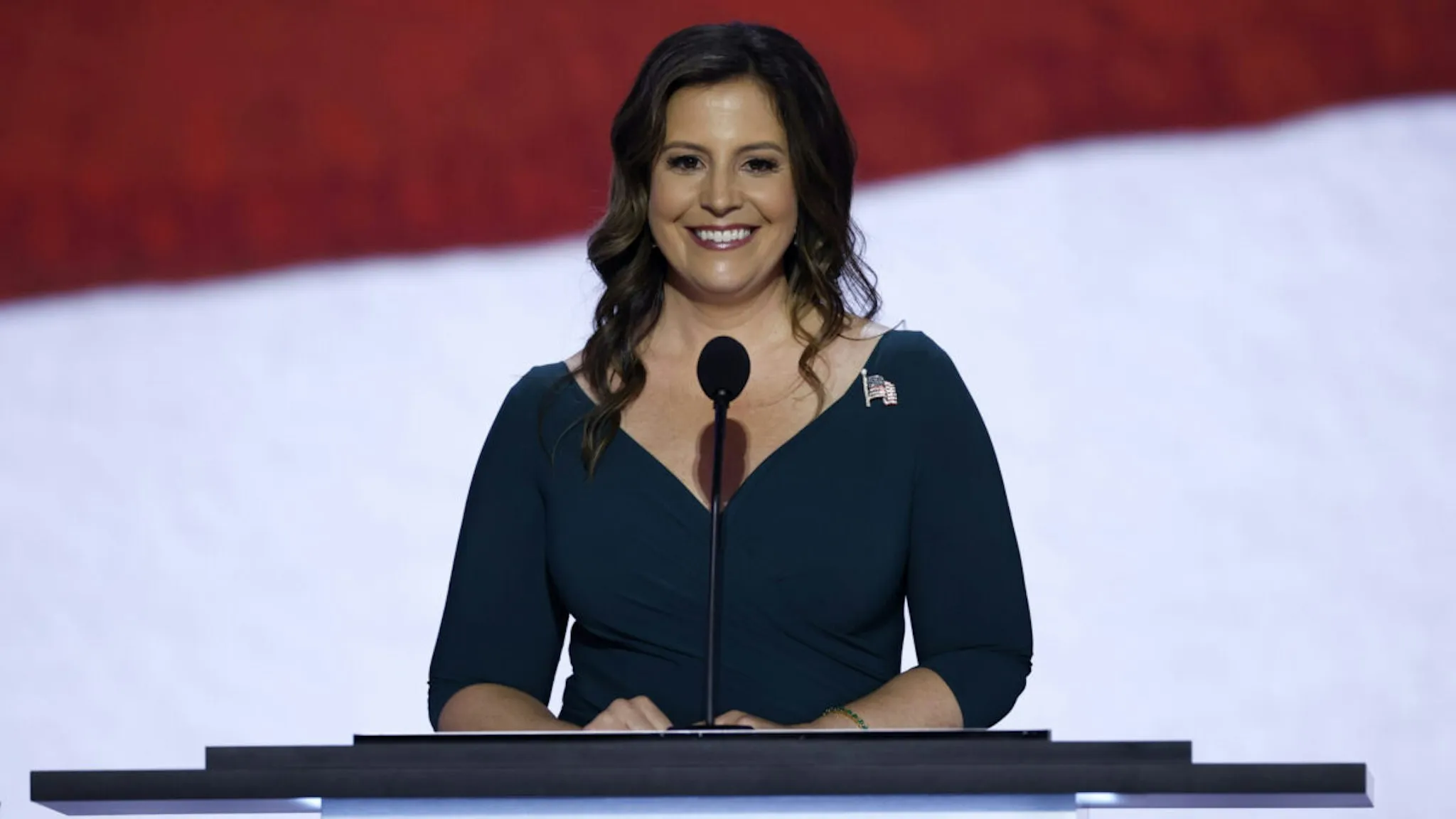Elise Stefanik: Trump’s Bold Choice for U.N. Ambassador Sparks Controversy
In a move that has sent ripples through the diplomatic community, former President Donald Trump has nominated Elise Stefanik, a key Republican ally, to serve as the United States Ambassador to the United Nations. The selection of Stefanik, a young and controversial congresswoman from New York, has ignited a passionate debate about the future of American international diplomacy.
Stefanik, who has been a staunch supporter of Trump throughout his political career, brings a unique background to this high-profile diplomatic role. At 39 years old, she is the youngest woman ever elected to Congress, representing New York’s 21st district since 2015. Her nomination signals a continuation of Trump’s “America First” foreign policy approach.
The congresswoman’s path to the U.N. ambassador position is marked by her unwavering loyalty to Trump and her prominent role in Republican leadership. She served as the House Republican Conference Chair and played a significant part in key political moments during Trump’s presidency, including the controversial impeachment proceedings.
Stefanik’s foreign policy credentials are rooted in her work with neoconservative think tanks, including the Foundation for Defense of Democracies and the Foreign Policy Initiative. Her background suggests a hawkish approach to international relations, particularly concerning:
- Strong support for military assistance to Israel
- Opposition to the Iran nuclear deal
- Advocacy for aggressive diplomatic strategies
- Commitment to reducing U.N. funding that conflicts with U.S. interests
The nomination has elicited mixed reactions from political observers and diplomatic circles. Foreign diplomats are watching her potential confirmation with a blend of concern and cautious curiosity. Critics argue that her relatively limited diplomatic experience could pose challenges in navigating complex international negotiations.
Supporters of Stefanik contend that her congressional background provides a unique perspective on legislative oversight. “She understands how Washington works,” said one Republican strategist, “and that could be a significant advantage in UN negotiations.”
The Senate confirmation process is expected to be relatively smooth, given the Republican majority. However, Democratic senators are likely to scrutinize her past statements and positions on international conflicts, particularly her views on nuclear policy and global governance.
Stefanik’s approach to the United Nations is expected to be transformative. She has been vocal about reforming U.N. operations and ensuring that American interests are prioritized in global decision-making. Her commitment to combating what she perceives as anti-Israel bias within the organization will likely be a key focus of her potential tenure.
Progressive groups have already voiced concerns about her nomination. “Stefanik’s hardline approach could potentially damage delicate international relationships,” warned one human rights organization. Her critics argue that her diplomatic style might be too confrontational for the nuanced world of international diplomacy.
As the confirmation hearings approach, all eyes are on Stefanik. Her potential role represents more than just a diplomatic appointment – it symbolizes the ongoing ideological battle within American foreign policy. Whether she will be a disruptive force or a strategic negotiator remains to be seen.
Key Takeaways
- Trump nominates Elise Stefanik as U.N. Ambassador
- She brings a strong conservative and pro-Trump background
- Confirmation expected to highlight her foreign policy views
- Potential to reshape U.S. engagement with international organizations
The diplomatic world waits with bated breath to see how Stefanik will navigate the complex landscape of international relations.






Leave a Comment